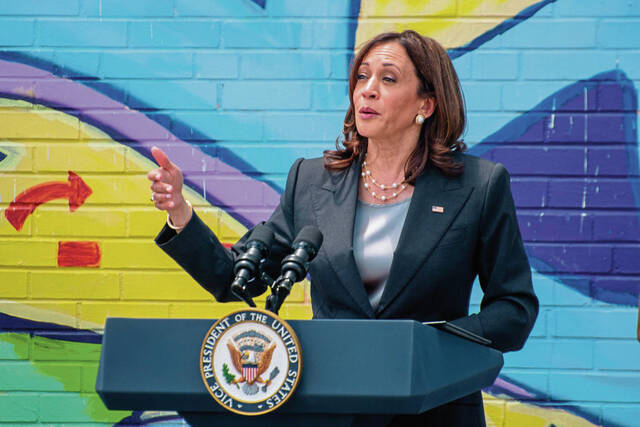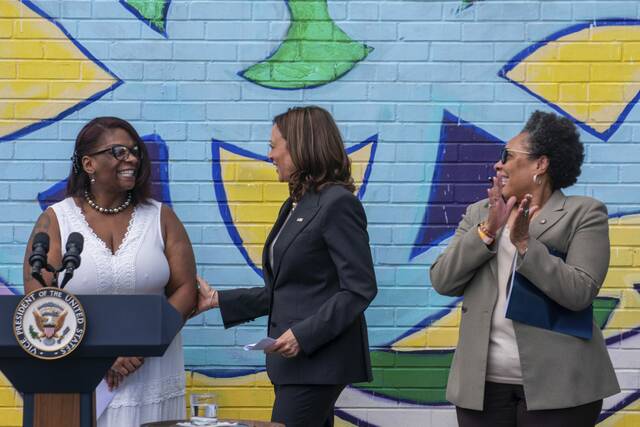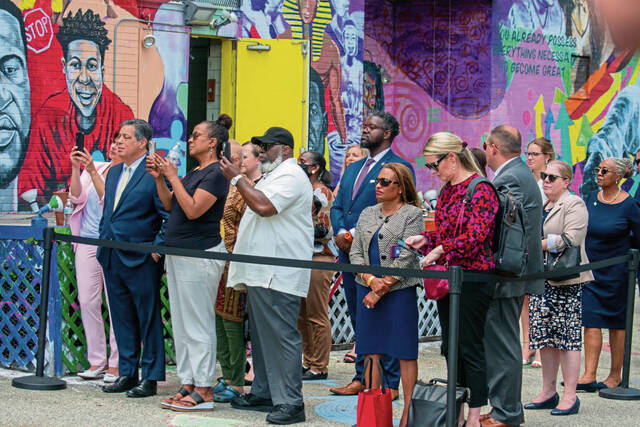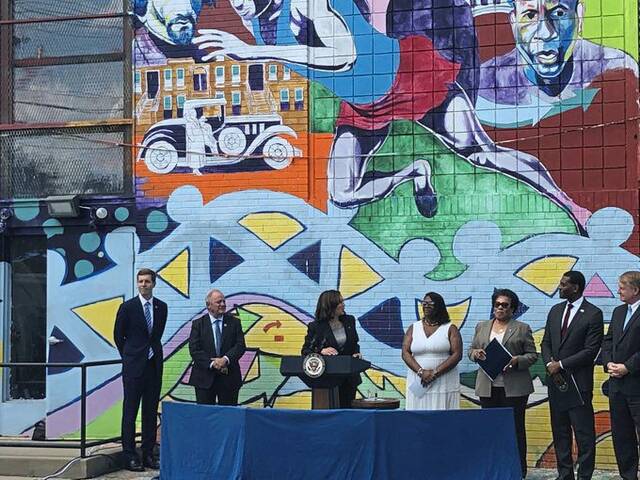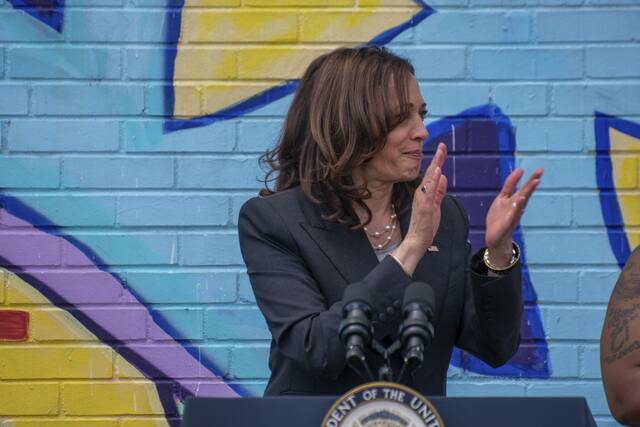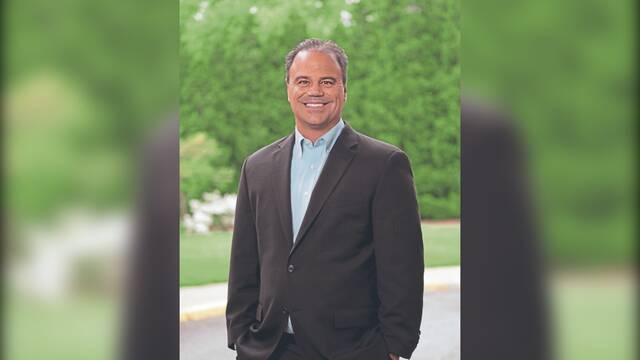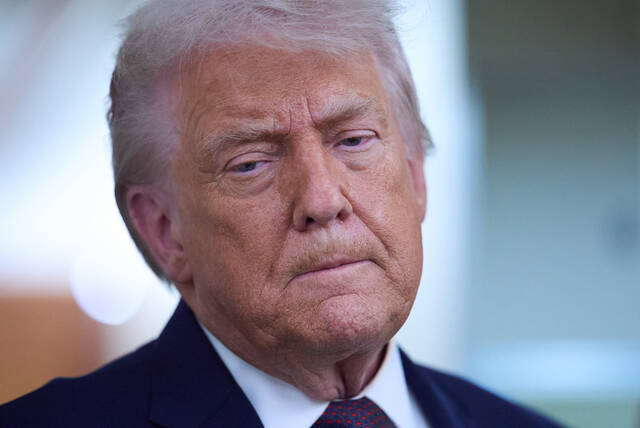Vice President Kamala Harris, in a visit to Pittsburgh on Friday, discussed the administration’s efforts at the federal level to replace lead pipes — an issue familiar to many Pittsburgh residents.
Harris, alongside EPA administrator Michael Regan and Housing and Urban Development Secretary Marcia Fudge, spoke at the Community Empowerment Association in Homewood South. They arrived in Pittsburgh late in the morning and led a discussion among a group of community members about lead lines and the harm lead can do to children and adults.
Kim Clark-Baskin was among the Pittsburgh residents who spoke with Harris about her experiences.
“I shared my family’s story of my 16-year-old son having elevated lead levels, which caused him to have headaches, and my 76-year-old father who developed respiratory issues as well as other complications,” she said.
A program through the county, she said, allowed her father to get a complete lead abatement on his property.
“In large part, the work that we are doing is in response to the advocacy that has been coming out of leaders like the leaders here in Pittsburgh who have been demanding that we prioritize this as an issue,” Harris said.
Fudge announced a $500 million HUD grant aimed at addressing hazards in homes — such as lead pipes and lead paint.
“Too many children are lost every year due to the devastating effects of lead,” Fudge said.
Locally, the Pittsburgh Water and Sewer Authority has struggled to reduce lead levels in drinking water, which exceeded acceptable levels for years. Since 2016, the authority has been working to replace all lead water lines in its service area, which includes about 300,000 people in Pittsburgh and the surrounding area.
“We know this community has stepped up in a way that so many have not,” Fudge said. “They started to attack the problem, but we still have a lot to do.”
Harris says work to replace lead lines has to be collaborative with local leaders and community members. She said Pittsburgh’s efforts should be a model for the rest of the country. pic.twitter.com/K3FnZfalmD
— Megan Guza (@meganguzaTrib) June 17, 2022
Since 2016, PWSA, using a combination of state and federal grants, has replaced more than 9,100 public lead lines across the authority’s coverage area along with more than 6,000 private lines. Work so far this year has focused on replacing lead service lines at day cares and other sites with elevated lead levels in water samples.
Harris pointed to the Biden administration’s bipartisan infrastructure bill, which has earmarked $15 billion for lead pipe removal.
“That money will go toward what local governments can do to facilitate testing — at-home tests, things of that nature,” she said. “And it will go to the removal of lead pipes.”
Today I am in Pittsburgh, Pennsylvania with @SecFudge and @EPAMichaelRegan to meet with community members who have been impacted by lead pipes and paint. Thanks to our Administration’s historic investments, we are on a path to replace all lead pipes in America.
— Vice President Kamala Harris (@VP) June 17, 2022
The vice president said there are three issues at play when it comes to the need to replace pipes containing lead.
The first, she said, involves equity. Some people can afford to remove and replace their pipes if they contain lead. Others cannot.
“This should not be a function of how much money you have to pay to remove the lead from the climate,” she said.
She said the issue also is one of public health because of the damage it can do, and it is an issue of education, too.
“This is literally an issue about the education of our children, because we know there’s a direct correlation between lead pipes and learning ability or disabilities based on the toxins that are present in that water,” she said.


